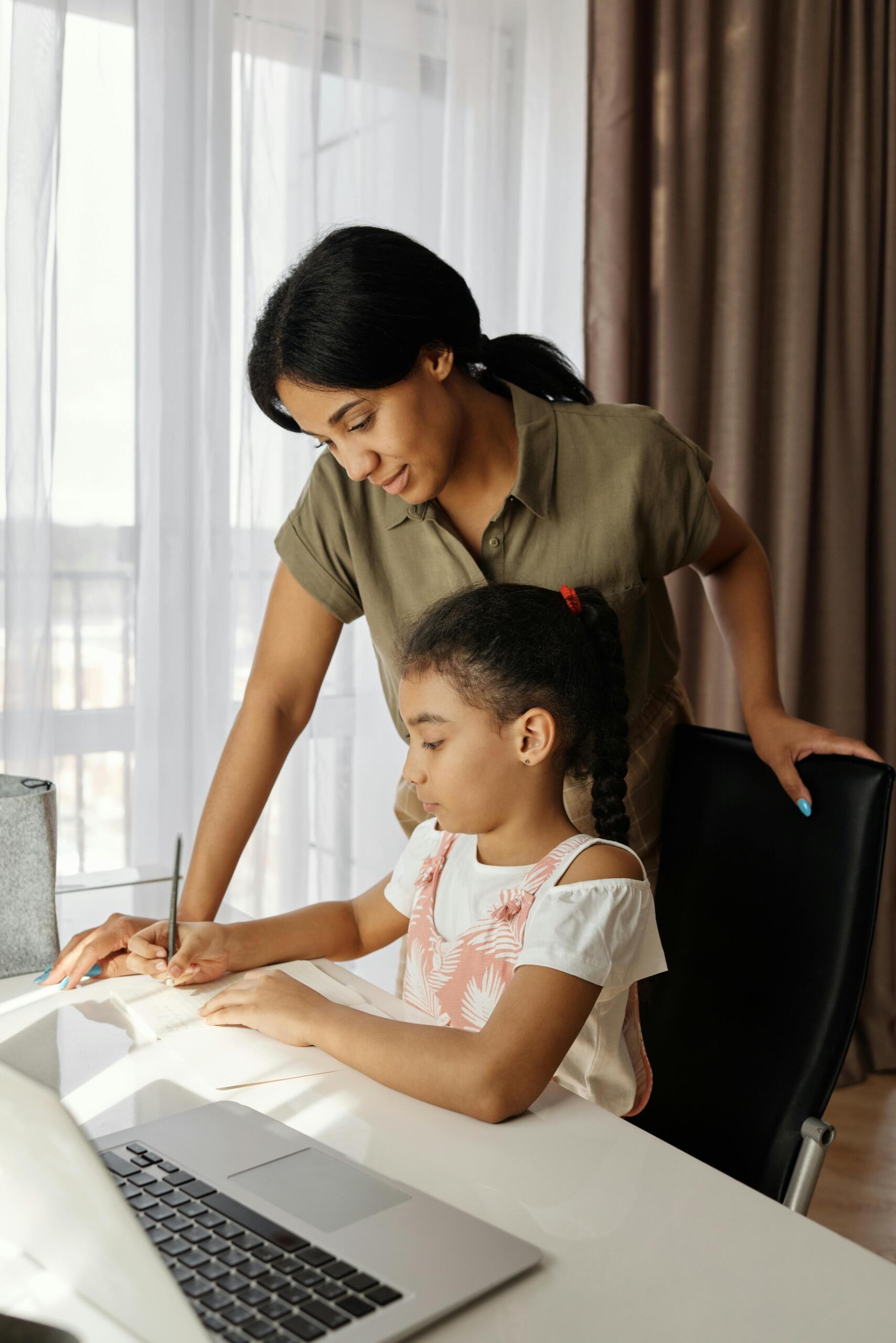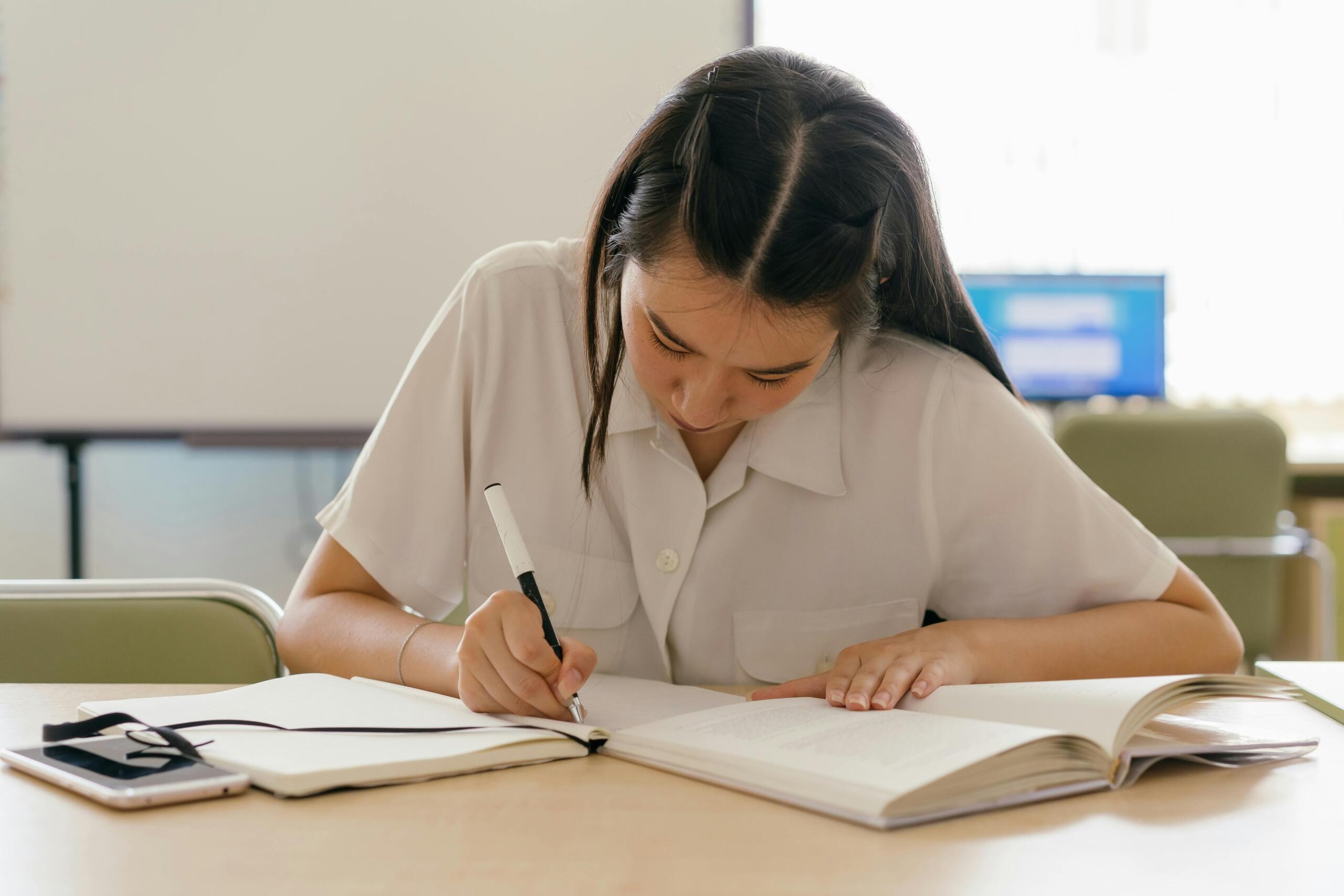The average 15-year-old pupil in the UK has 5 hours of homework each week. Generally, in countries where they get more homework, their academic performance doesn’t increase. However, this doesn’t mean that homework is pointless. It can be used to consolidate a student’s understanding of the lessons they did during the day. The amount of homework generally increases with age and primary school pupils get a lot less than students studying for their GCSEs. The 5 hours a week statistic is average for OECD countries. Chinese students get an average of 14 hours of homework each week but their PISA results are only marginally better than countries with between 3 and 6 hours of homework. So how much time should you spend doing homework?
| School Stage | Age Range | Recommended Daily Homework Time |
|---|---|---|
| Primary School (Infants) | 5-7 years | 10-30 minutes |
| Primary School (Juniors) | 8-11 years | 20-40 minutes |
| Secondary School (Year 7) | 11-12 years | Up to 45 minutes |
| Secondary School (Years 8-9) | 12-14 years | 45-60 minutes |
| Secondary School (Years 10-11) | 14-16 years | 1-1.5 hours |
| Sixth Form/College (Year 12) | 16-17 years | 1-2 hours (plus independent study) |
| Sixth Form/College (Year 13) | 17-18 years | 2-3 hours (plus independent study) |

Homework at Primary School

Children in primary school should probably go back over what they’ve been learning during the day. Even if this is reading a passage or practising some timetables. They really shouldn’t have more than 24 hours a week of schooling with no more than 3 hours per half-day. Generally, they’ll be in classes from 9:00 until 15:00 with breaks in the morning and afternoon as well as a lunch break. However, in some cases, they might only get a couple of breaks during the day. Once they get home, the amount of homework they do reflects their age and level. Check out our guide to homework.
Infants
Younger primary students or “infants” (Reception to Year 2) will learn to read, write, and count. While their days will be full of learning, they’ll also require periods of relaxion to aid with concentration. At the end of the day, we recommend a snack and a break before they do any schoolwork.

Usually, homework can take between 10 minutes and half an hour at this age and usually involves some reading, simple maths exercises, or a bit of writing.
At 6 or 7, most pupils will require support from their parents when they go over their lessons and do their homework.
Knowing how many hours should a 6 year old study at home will help ensure the child isn't overworked and maintains a good attitude towards learning.
If your child is struggling at school or is tired, don’t hesitate to chat with them over lunch and quiz them on their timetables during bath time, for example. You’ll want them to see homework as something fun rather than a chore and private tutoring can offer support with this.
Juniors (Year 3 to Year 6)
Older primary pupils still won’t get too much homework. Again, they can have a break and a snack before getting down to do their homework. Homework Statistics UK will tell you that children aged between 8 and 10 will probably only need between 20 and 40 minutes to do their homework.
Even though it’s a good idea for the parents to be there, the pupil needs to have some autonomy when it comes to completing their homework and the parents should only get involved if necessary.
Of course, you can listen to them reading and correct them.
At a young age, you might want to avoid them finishing homework at the weekend.

We know that this isn’t always possible, but having them do homework on school days can assist you in organising your schedule more easily. If you don’t have the choice, allocate a few hours on a Saturday or Sunday to do homework. Find out more about planning and organising homework.
How Much Time Should Secondary School Pupils Spend Doing Homework
Once pupils reach secondary school, homework will take on a more important role. Going into Year 7 is a big step for a lot of pupils. They ought to adapt to their new school and the idea of having several teachers instead of just one. They’ll also have different classes with different teachers. A typical day will be slightly longer and the school may be farther away, which makes their overall day a bit longer, too. As they progress, they’ll have more choices in terms of the subjects they can cover.
Year 7

How many hours should a 6 year old study at home? Well, Year 7 will be the biggest change as they adjust to their new school. In a lot of cases with pupils coming from different primary schools, teachers will be trying to get all the pupils to the same level. Students would not normally have over 45 minutes each day on homework. They’ll also have opportunities during the day to do some of their homework.
Year 7 students should dedicate about 30 minutes per piece of homework
Of course, the hours spent will vary a good deal and it is therefore important for students to complete homework the day it is given, whenever possible, to avoid a build‐up of work.
Years 8 and 9
During Years 8 and 9, a lot of students get to make choices about some of the subjects they cover, especially foreign languages. They also get chances to try out different subjects before choosing their GCSE options at the end of Year 9. At this age, between 45 minutes and an hour are generally enough to focus on their homework. Of course, this will depend on how well they revise and how long they can concentrate. Now that you know how many hours should a 14 year old study at home you'll be able to balance your work and revision.
Years 10 and 11
Year 10 is the first year of GCSE for students. During this age, we recommend spending an hour each day on their homework. This will increase before exams or when they’re working on past papers. If they still require support with studying, it might be a good idea to get assistance from a private tutor. Find out more about how to deal with a lot of homework.
Homework in UK - Sixth Form or College
Once students have finished their GCSEs, they can move on to their A Levels. They can do this at their school if it has a sixth form or study at a college. At this age, courses aren’t about rote memory but rather an understanding of the concepts they’re reviewing.
Lower Sixth or AS Level
At this age, students tend to have fewer hours of lessons but more time to dedicate to revision. If they’re at college, they mightn’t be free to come and go as they please. They may have a lot of gaps in their timetable and it’s a good idea for them to use this time to revise or do homework. Ideally, they won’t want to spend more than an hour each day outside of the typical school time studying or revising. They have a lot of freedom and control over their education at this point. If they can stay on top of everything, they might not be required to dedicate any time outside of college to study. Understanding the recommended homework time by age provides invaluable insight when gauging the associated workload with each academic year.
A Level/Upper Sixth

As mentioned, students will have a lot of freedom when it comes to their free and it’ll mainly fall on them to be responsible. They won’t have teachers pressing them to get work done and they’ll be expected to take control of homework and studying. Learn how to help children with their homework. We still recommend that an hour to 90 minutes studying and completing their homework and even a bit on the weekend, especially if they have exams coming up. It can be useful for memory to go over the week’s classes at the weekend.
How Superprof Can Help You With Your Homework
If you or your child need support with homework or schoolwork, consider getting support from one of the many talented and experienced private tutors on Superprof. The platform provides personalised tutoring that can boost your academic success, whether you're struggling with a specific concept, require guidance on achieving the grade you've been aiming for or looking for support on effective time management. With a wide range of expert tutors available in various disciplines, you can get guidance on challenging topics and strategies for completing assignments efficiently. By working with a tutor, you can clarify concepts, review class materials, and tackle complex problems, ensuring that you stay on top of your schoolwork while balancing other commitments like work. Given the hours you're going to be spending, you'll want to learn how to get the most out of homework.
Private tutorials are either taught face-to-face, online, or in groups and each type of tutoring comes with advantages and disadvantages so think carefully about which one is right for you and your budget before hiring a private tutor.
One-on-one tutorials tend to be the most expensive type of tutoring available as you'll be paying for all the extra time and effort the tutor puts into planning and adapting their lessons to the student. As they don't have to travel to each tutorial, online tutors can afford to charge less than face-to-face tutors and they often do.
While these types of tutorials mightn't be as effective for certain hands-on topics, they're excellent for academic subjects, revision skills, revision, and help with homework. Remember that a lot of the tutors on Superprof offer the first lesson or hour for free and you can use these sessions to try out several different tutors before deciding on the right one for you. Once you've chosen the perfect tutor, you can start working with them directly.
Summarise with AI:
















Hi there, any chance I could see the sources you used for this article? Thanks!
I like to learn about my new school
That’s a great attitude to have — being curious about your new school is the perfect way to get ready! If there’s anything you’d like to learn more about, like subjects you’ll be studying or how to settle in, we’ve got lots of helpful resources and friendly tutors on Superprof who can support you along the way. Wishing you all the best in your new school adventure!